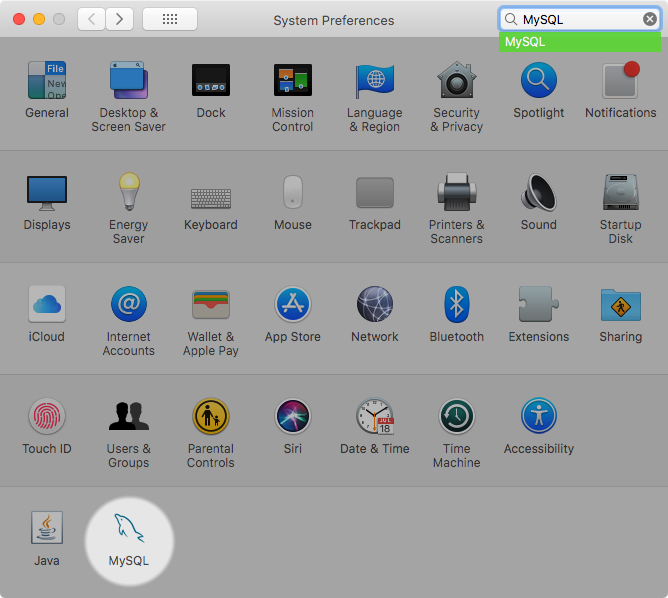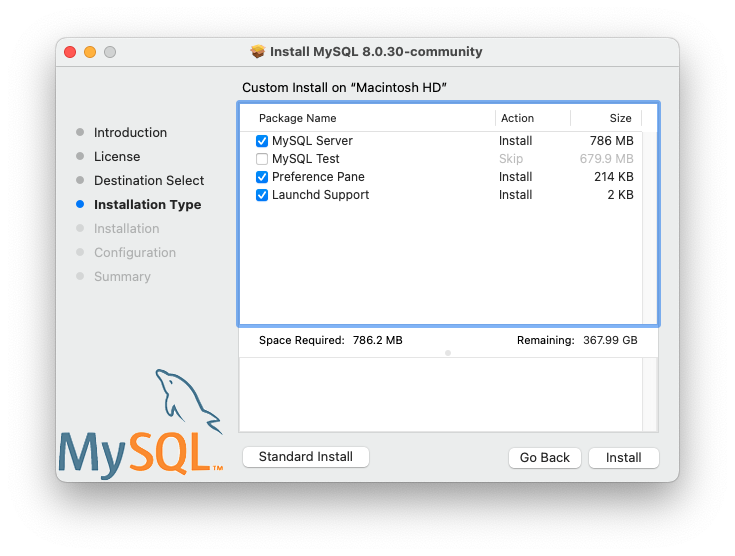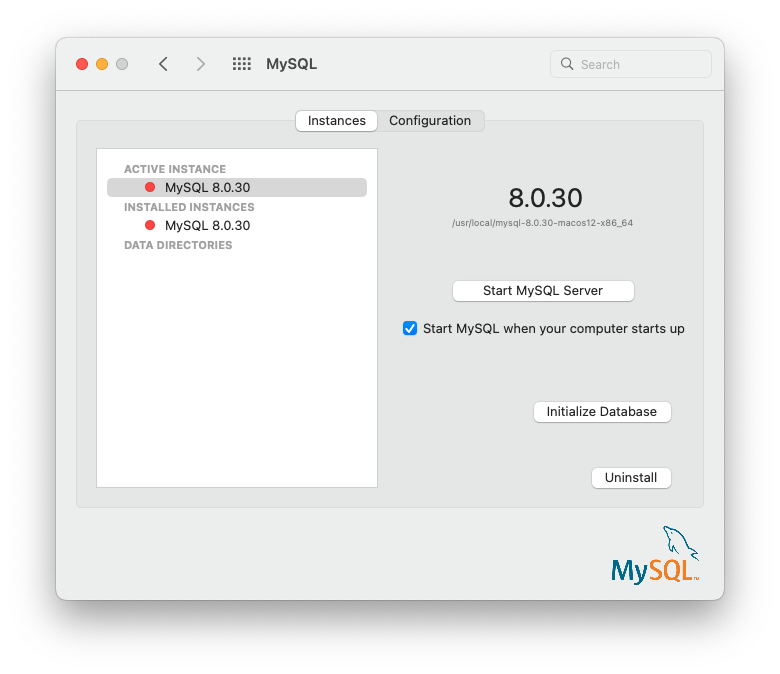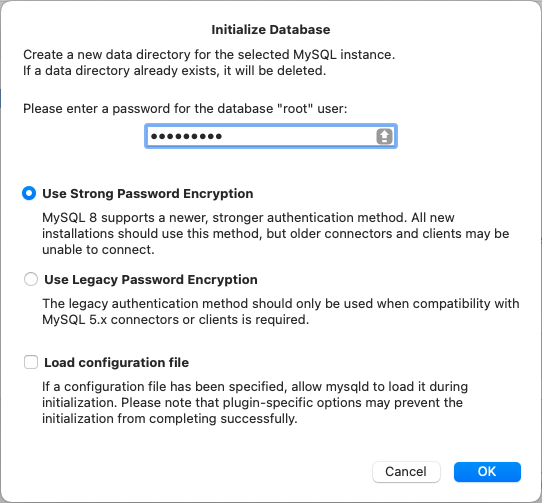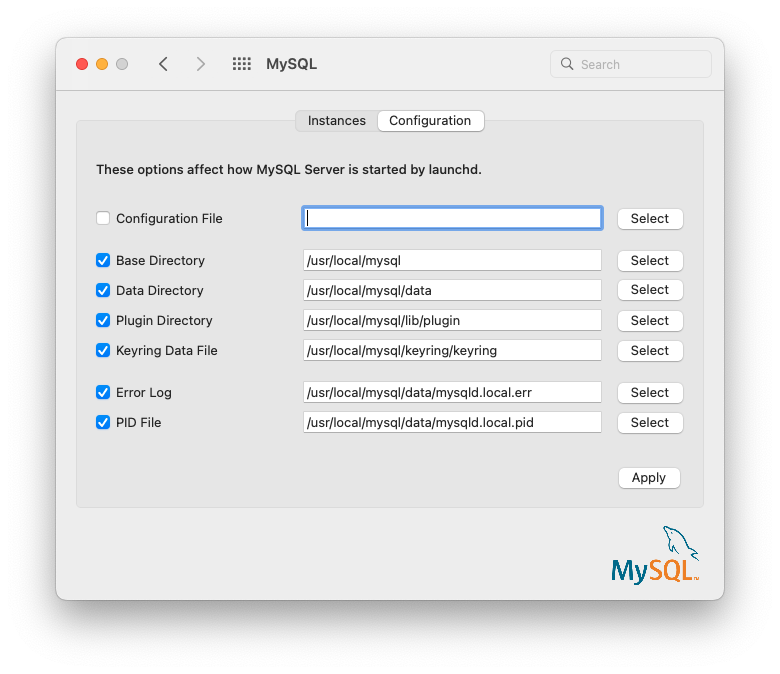The MySQL Installation Package includes a MySQL preference pane that enables you to start, stop, and control automated startup during boot of your MySQL installation.
This preference pane is installed by default, and is listed under your system's System Preferences window.
The MySQL preference pane is installed with the same DMG file that installs MySQL Server. Typically it is installed with MySQL Server but it can be installed by itself too.
To install the MySQL preference pane:
Go through the process of installing the MySQL server, as described in the documentation at Chapter 2, Installing MySQL on macOS Using Native Packages.
Click at the Installation Type step. The "Preference Pane" option is listed there and enabled by default; make sure it is not deselected. The other options, such as MySQL Server, can be selected or deselected.
Complete the installation process.
The MySQL preference pane only starts and stops MySQL installation installed from the MySQL package installation that have been installed in the default location.
Once the MySQL preference pane has been installed, you can control your MySQL server instance using this preference pane.
The Instances page includes an option to
start or stop MySQL, and recreates the data/
directory. uninstalls MySQL
Server and optionally the MySQL preference panel and launchd
information.
The Configuration page shows MySQL Server options including the path to the MySQL configuration file.
The MySQL Preference Pane shows the current status of the MySQL server, showing stopped (in red) if the server is not running and running (in green) if the server has already been started. The preference pane also shows the current setting for whether the MySQL server has been set to start automatically.
